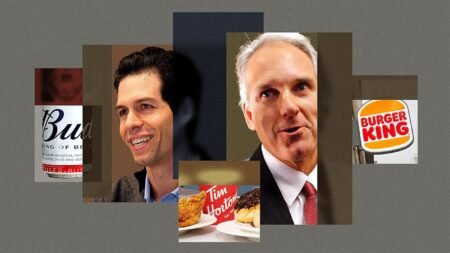President Trump’s former US Trade Representative, Robert Lighthizer, is reportedly meeting with investor groups and telling them that if Trump is reelected, he could implement sweeping tariff proposals quickly after taking office. Lighthizer, who is advising Trump’s presidential campaign on economic issues, has outlined plans for a 60% Chinese tariffs and 10% across-the-board tariffs shortly after Trump’s potential reelection. While no official policy statements have been made by Trump directly, Lighthizer’s influence underscores the importance of tariffs in Trump’s overall economic vision.
Lighthizer’s reported conversations with investors have raised concerns among economists and tax experts who warn that Trump’s expansive tariff plans will raise prices, lower US GDP and hurt employment in key industries. Democratic presidential nominee Kamala Harris has cited analysis suggesting Trump’s tariffs could result in nearly a $4,000 tax increase for the average US family. Despite criticism, the Trump campaign emphasizes that the tariff proposals should be viewed in the context of broader economic plans, including deregulation and increasing US oil production.
Piper Sandler analysts have cautioned investors to take seriously Trump’s promises to increase tariffs, with expectations that tariffs could rise quickly in a second Trump term. Trump has expressed his affinity for tariffs, presenting them as a tool for reshaping the US economy and generating revenue. He has vowed to impose a 10% universal baseline tariff on foreign imports and a 60% tariff on Chinese imports. Trump views tariffs as deterring foreign competition and gaining geopolitical leverage, while also providing financial resources for tax cuts and government programs without compromising.
Trump’s tariff proposals have been met with skepticism by experts who warn of negative economic consequences. While Trump has portrayed tariffs as beneficial for the US economy, critics caution that they could lead to price increases and lower employment. However, the Trump campaign asserts that tariffs are crucial for protecting American jobs and combating unfair foreign trade practices. Trump’s plans include using tariffs as leverage to negotiate concessions on various issues and as a method to boost domestic manufacturing by imposing taxes on products made outside the US.
While Trump advocates for tariffs, there are concerns about their potential impact on consumer prices and the overall economy. Trump has proposed using tariffs as both a deterrent to foreign competition and a revenue source for government programs. He has expressed confidence in his ability to implement high tariffs and generate sufficient revenue to support his economic agenda. Critics argue that tariffs could have adverse effects on the economy and lead to higher costs for consumers. Despite the contentious debate over tariffs, Trump remains steadfast in his belief that they are essential for protecting American workers and promoting economic growth.
In conclusion, Trump’s tariff proposals, if implemented, could have far-reaching implications for the US economy. While Trump views tariffs as a solution to economic challenges and a means to protect American workers, experts warn of potential negative consequences, including higher prices and reduced GDP. The debate over tariffs continues to be a central focus of Trump’s economic policies and could play a significant role in shaping future trade relations with other countries. Only time will tell the true impact of Trump’s tariff proposals on the US economy.











